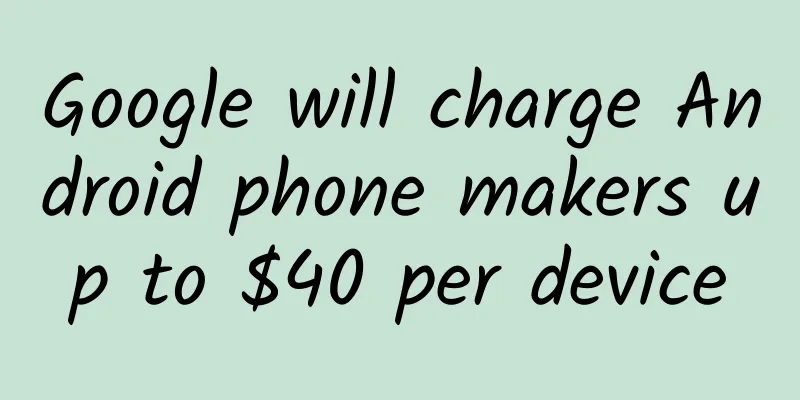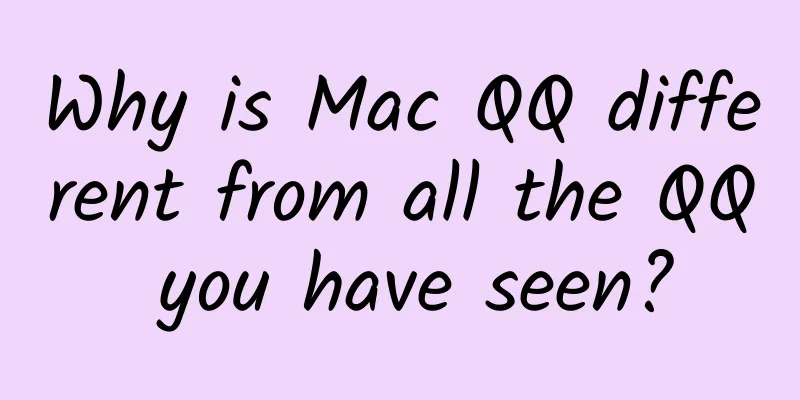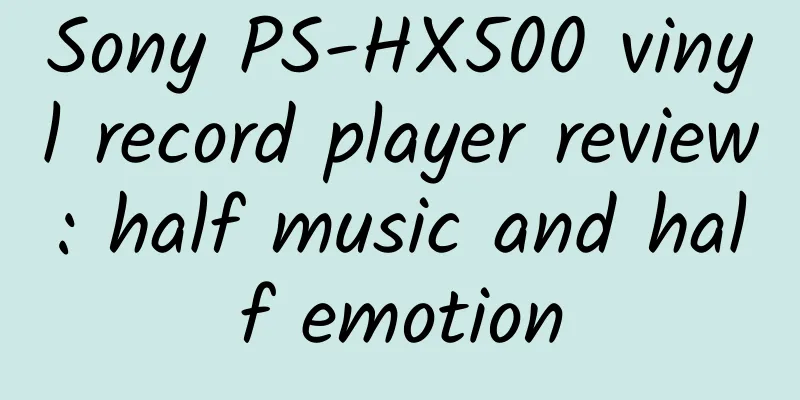Google will charge Android phone makers up to $40 per device

|
*** News: According to documents obtained by foreign technology websites, Android device manufacturers will have to pay Google an astonishingly high licensing fee in Europe to pre-install Google Play and other mobile applications on their devices. A confidential list of charges shows that the cost of installing the "Google Mobile Services" application package on each device will be as high as $40 (about RMB 277), including Google Play. The new charges will vary depending on the country and device type, and it will apply to Android devices activated on or after February 1, 2019. But phone makers may not actually have to bear those costs. Google is also offering alternative agreements that would allow companies that choose to install the Chrome browser and Google Search on their devices to offset some or all of the licensing fees, according to a person familiar with the matter. Google declined to comment. Google's licensing terms in Europe are changing later this month due to a European Commission ruling that bars the company from forcing phone makers to bundle Chrome, Search and other apps together. In public statements, Google has been cagey about the exact composition of licensing fees. But documents show that the agreements reached with EU manufacturers will be rated based on country and pixel density. EU countries are divided into three tiers, with the highest fees including the UK, Sweden, Germany, Norway and the Netherlands. According to the pricing document, in these countries, devices with a pixel density of more than 500 ppi must pay a fee of $40 to obtain a license for the Google Apps package. Devices with a pixel density between 400 ppi and 500 ppi will pay a fee of $20, while devices with a pixel density below 400 ppi will only pay $10. In some countries, the licensing fee for low-end phones may be as low as $2.5. It's unclear why pixel density is so important in the pricing scheme, but it's likely used as a proxy for the price of the entire device, as devices with higher pixel densities generally cost more. For example, the Samsung Galaxy S9 has a pixel density of 570 ppi. Tablets will face a completely different pricing scheme, mostly capped at $20 per unit, that applies in different countries. Some manufacturers may negotiate separate deals, but a source familiar with the plans said those separate deals are unlikely to be significantly different. In addition to offsetting upfront costs, manufacturers that don't pre-install Chrome may also be unable to share in the search revenue the browser brings in, which has long been an incentive for manufacturers to prioritize pre-installing Google apps. The European Commission's ruling did not explicitly require Google to collect licensing fees, but required Google to change its traditional application bundling sales model. The court ruled that Google's bundling of search and Chrome in the Android system stifled innovation and cut off device manufacturers' opportunities to sign better agreements on pre-installed browsers and search engines. In July, the EU also decided to fine Google $5 billion, but future unbundling measures are expected to be more significant. The European Commission sees the breakup as a way to increase competition, which could reduce costs or increase choices for consumers in the long run. Chrome and search are where Google makes its money, and without a bundled model, it would have to charge per device to fund the distribution of its apps and services. If a phone or tablet company wanted to install any of Google's apps, they would have to pay, and then decide whether to strike a separate browser search deal with Google to recoup some of the costs. Since the vast majority of Android apps are distributed on Google Play, most manufacturers likely have some sort of agreement with Google. If companies want to install Facebook, Instagram, Snapchat, and other popular apps on their devices, paying Google is the easiest way to do it. Critics of the European Commission's ruling see it as a new cost to be passed on to consumers, a view that could be reinforced by Google's new licensing model. One of Google's biggest attractions to manufacturers is that Android comes with no fees, a major advantage over Microsoft, which offers its own alternative operating system in exchange for a fee. Now, European companies will start paying Google on a per-device basis, which will likely lead to higher overall device costs, thereby making up for their lost revenue. |
>>: Do you understand these permissions in iOS development?
Recommend
7 Marketing Signals under the New Business Logic
This year, I have communicated with many brands a...
British Rail Operation Group: Introducing self-driving trains
A railway development report released by the Brit...
The price of Leopard 5 dropped by 50,000 yuan on the spot. What is the big move of Fang Cheng Leopard?
Recently, there have been more and more criticism...
5 things you must know about APP promotion, have you passed them?
Many students who do APP promotion spend their wh...
How to advertise with a budget of less than 100,000?
The 100,000 refers to the monthly budget, not the...
The top ten screen-sweeping cases in the first half of 2021!
The Harvard Business Review once pointed out: In ...
The sales target of Xiangjie S9 this year is 60,000 units. Is this the only battle that will determine the success of BAIC Motor, which suffered a loss of 25 billion yuan?
"This car competes with the Mercedes-Benz S-...
Help, why do you keep gaining weight? Because fat cells "remember" that you were fat...
I wonder if you have ever joined the army of weig...
Bao Juncheng: ATA All-round Literacy - Reading Chinese Stories (A)
A unique learning dimension: explaining Chinese s...
As global warming intensifies and precipitation increases in the north, will this cause more people to stay in the north?
★ It is not new that the temperature rises and pr...
The latest strategy for 2015: How to build Android third-party channels with zero budget?
Introduction: As we all know, domestic Android ch...
The 4 elements of event planning and event format design!
I am here again to share with you the knowledge o...
The world's fifth person cured of AIDS has appeared. Can the method of conquering AIDS be replicated?
On February 20, 2023, researchers from the Univer...
Musk admits that FSD needs to be improved, "LiDAR is lagging behind", but outsiders say Tesla is writing a blank check
Although Tesla has always been a leader in the fi...
How much does it cost to develop an e-commerce mini program in Wenzhou?
According to industry insiders, mini programs wil...









